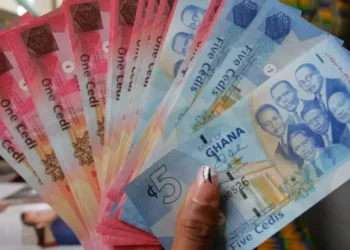The Ghana Union of Traders Association (GUTA) has threatened to protest if the benchmark value policy proposed by the government is reversed.
According to a press statement issued by the association, once the policy is reversed, the country may witness unending protests and agitations until the policy is re-instituted.
According to GUTA, its 68 member associations, along with other relevant private sector stakeholder groups such as the Food and Beverage Association of Ghana (FABAG), Importers and Exporters Association of Ghana (IEG), Pharmaceutical Importers and Wholesalers Association (PIWA), and Ghana Institute of Freight Forwarders, have met and unanimously resolved to fight the reversal of the 50 percent and 30 percent benchmark policy introduced in the budget.
The association mentioned that the conditions that prompted the policy’s implementation are not only still present, but have been magnified by the outbreak of the coronavirus (Covid-19) pandemic, which has resulted in global commodity prices rising by 100 percent, while freight charges have risen by over 600 percent, making business survival extremely difficult.
The association further stated that overturning this benchmark policy would not only be detrimental to economic growth but would also elicit widespread demonstrations, potentially resulting in turmoil in the country, given the tense atmosphere created by the Finance Minister’s announcement.
GUTA accused proponents of the reversal, the Association of Ghana Industries (AGI), of “diabolical, insensitive, and irrational lobbying of the government to reverse the policy against their local competitors in the business arena.”
The association intimated that AGI should avoid building a wedge between local manufacturers and other major participants in the private sector because their approach has the potential to promote dissension among private sector members, which would not support the government’s development strategy.
GUTA again reminded the government of the reason why the policy was introduced in the first place and how it has helped cushion businesses from their deplorable business conditions.
“The policy of reducing the benchmark values did not come out of the blue. It was introduced in 2019 to save businesses from total collapse, as a result of the very high import duties, other numerous taxes, high fees, and charges on imports ranging between 55% and 65%, draining our capital. This unbearable situation led to outcry and serious agitations by members of the business community, especially, importers and call for a drastic reduction of cost of doing businesses in the country.”
GUTA
They further claimed that the government insisted it was bound by the ECOWAS Common External Tariffs and hence could not easily lower import charges, but that it chose to lower the benchmark policy value as it was the best choice for alleviating the pain of Ghanaian enterprises and restoring calm in the country. GUTA added that this novel policy was extremely effective in reducing tension, halting unrest, and assisting customs in exceeding revenue targets.
GUTA finally declared that it will not accept the government’s decision to reverse the benchmark value lowering plan, and requested the government to listen to its concerns to avoid instability in the country.
Read Also: E-Levy will improve Tax-to-GDP ratio- Finance minister


















